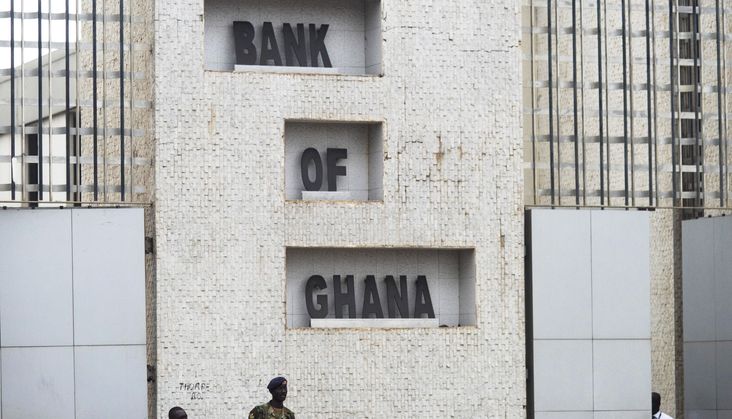In 2023, the Bank of Ghana (BoG) found itself at the helm of the country’s economic ship amid stormy global and domestic waters. With a landscape marred by rampant inflation, currency fluctuations, and post-pandemic recovery challenges, the central bank was forced to implement a series of rigorous monetary and fiscal measures aimed at stabilizing the Ghanaian economy.
Today after much reflection and going through the 2023 financial report which has been received with mixed feelings among the population, I sort to examine the multifaceted operations of the Bank of Ghana throughout the year and share with you parts of it by highlighting its strategic policies, balance sheet complexities, and forward-looking initiatives.
I believe that after reading this piece, which is my breakdown of the Bank of Ghana’s operations, you will be informed and not confused about your central bank and the thinking behind its operations.
Let’s delve into the matters that you are confused about, leaving you with lingering questions on your mind.
But let me leave you with this disclaimer, I do not posit to be a master in monetary policy issues or the know-it-all all when it comes to financial writing or anything concerning the operations of the Bank of Ghana. I am only sharing with you my understanding of the bank’s operations in 2023, as I have come to know from the report issued and my engagement with the monetary authority over the years.
Monetary Policy Adjustments in an Inflationary Context
The year 2023 was pivotal for the Bank of Ghana as it faced an uphill battle with inflation, which stood alarmingly at 54.1% at the end of 2022. Under the leadership of Governor Dr. Ernest K.Y. Addison, the bank took decisive action, utilizing thee Monetary Policy Rate (MPR) as its primary tool to reign in the rampant inflation, as well as aggressive mopping of excess liquidity in the economy through its open market operations.
By the end of the year, these efforts saw inflation more than halved to 23.2%. This significant reduction was a testament to the effectiveness of the bank’s tight monetary policy stance, which included several upward adjustments of the MPR, eventually stabilizing at 30%.
Stabilizing the Ghanaian Cedi
Currency stability was another major focus for the BoG in 2023. The Ghanaian Cedi, which had experienced significant volatility in previous years, saw a period of relative stability, thanks to the central bank’s interventions.
These included bolstering foreign exchange reserves through strategic manoeuvres and the successful IMF programme deal which brought some cash to support the balance of payment.
These actions not only shored up the cedi but also instilled confidence among international investors regarding Ghana’s economic governance.
Fiscal Management and Governance
Fiscal discipline was rigorously maintained throughout the year. The BoG’s strict adherence to a zero-financing policy, which prohibits the bank from funding the government’s budget deficit, played a crucial role in this discipline. This policy alignment with IMF recommendations helped Ghana achieve a lower-than-expected budget deficit. This prudence was critical in an environment where fiscal responsibility was paramount to maintaining economic stability.
Addressing the Balance Sheet and Recapitalization Efforts
Despite the successes in policy implementation, the Bank of Ghana faced significant challenges on its balance sheet, ending the year with substantial operational losses totalling GH¢10.5 billion. These losses were driven by high costs associated with maintaining price stability and impairments on government securities.
In response, the bank initiated a strategic recapitalization plan aimed at restoring its financial health. This plan was essential not only for improving the bank’s fiscal resilience but also for ensuring its ability to continue performing its critical functions effectively.
Promoting Financial Inclusion and Innovation
The BoG also made considerable strides in enhancing financial inclusion and embracing technological innovations within the financial sector. The launch of a regulatory sandbox allowed fintech companies to develop and test new digital finance models under the supervision of the central bank. Furthermore, the exploration of the e-Cedi, a digital currency initiative, positioned Ghana as a forward-thinking player in the global financial technology landscape.
Challenges and Strategic Outlook
The journey through 2023 also highlighted several challenges and areas for strategic focus moving forward. The bank recognized the need for continued vigilance in monetary policy adjustments to manage any potential resurgence of inflation or further economic shocks.
Additionally, the ongoing efforts to strengthen the financial sector’s infrastructure were deemed crucial for supporting sustainable economic growth.
Conclusion: Building Towards a Resilient Future
The Bank of Ghana’s operations in 2023 were a robust response to a complex array of economic challenges. Through strategic monetary adjustments, fiscal discipline, and innovative financial policies, the bank not only stabilized the national economy but also laid down a foundation for sustainable growth.
As Ghana moves forward, the strategies implemented and the lessons learned from this year will undoubtedly influence the country’s future economic trajectory, emphasizing the central bank’s pivotal role in shaping a resilient economic future.
Looking Ahead
As 2024 unfolds, the Bank of Ghana continues to prioritize economic stability, risk management, and innovation. The bank’s proactive stance on monitoring inflation trends and its commitment to enhancing financial inclusion through digital platforms are expected to play crucial roles in the nation’s economic development.
As I end this piece, let me say that with a focus on maintaining currency stability and managing public debt sustainably, the Bank of Ghana is set on a path that aims not only to navigate the present challenges but also to harness future opportunities for the Ghanaian economy.
Source:Norvanreports.com
